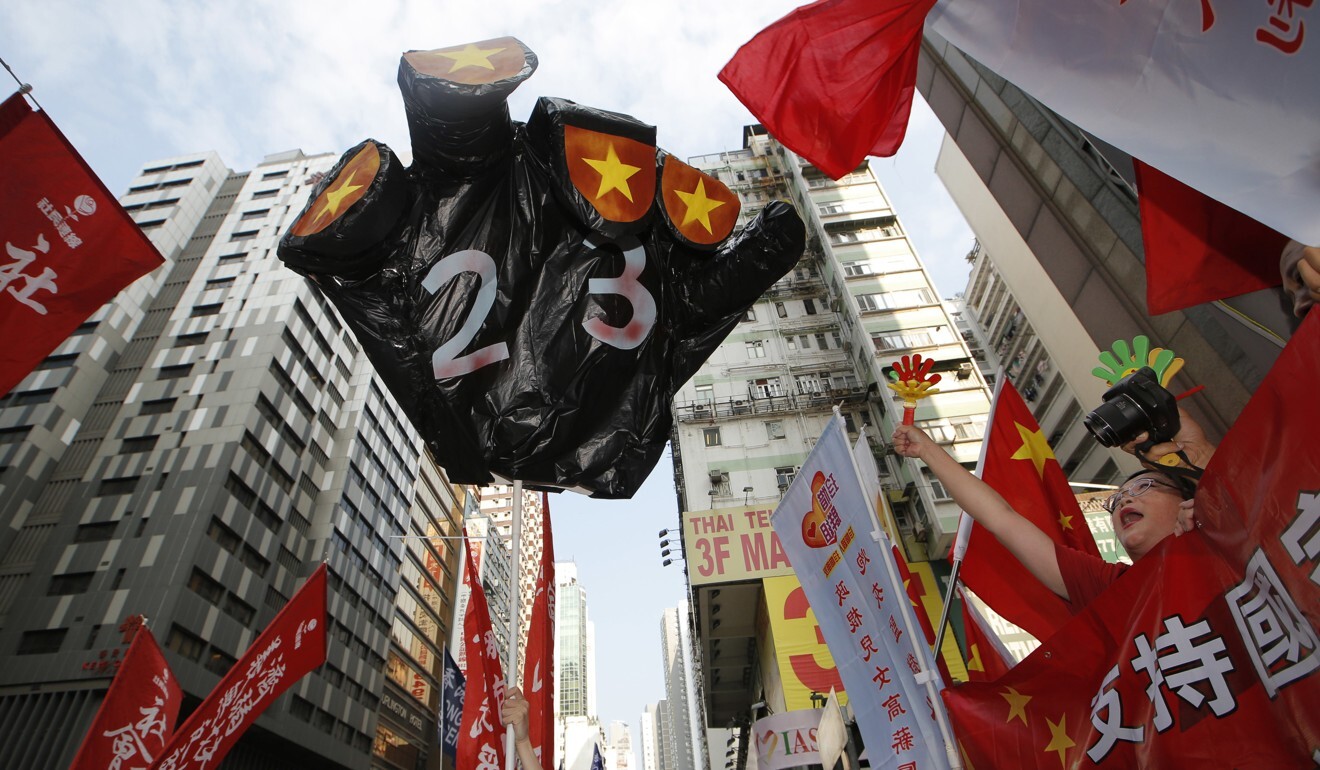
Exclusive | Hong Kong national security law: time is ‘ripe’ for Article 23 with focus on combating ‘state-level spying’, minister says
- Security secretary Chris Tang says authorities expect less of a backlash now than in 2003 to bring back shelved bill, given residents have witnessed 2019 social unrest
- He adds that bill could be passed in the next four-year term of the legislature
Countering “an obvious increase in spying activities by state-level groups” over the past two years will be the main focus when Hong Kong revives a long-shelved bill under its mini-constitution to safeguard national security, according to the city’s top official in charge of the issue.

With a separate national security law imposed by Beijing already in place and enforcement in full swing, Tang said he expected less of a backlash now than back in 2003 when strong public opposition forced the government to shelve the original bill which the city was constitutionally bound to enact.
“This is obvious … you can tell from the colour revolution in Hong Kong two years ago,” Tang said, referring to heightened espionage.
What is Article 23 in Hong Kong and why is the issue back in the spotlight?
“It was well organised. Especially in the beginning, you could see the abundant supplies – helmets, train tickets and white shirts [to change into from the signature black that activists used before blending into the crowds] – for the protesters, as well as the strong cooperation by foreign media.
“This was by state-level organisations. A colour revolution could not be stirred up by just a few thugs. It is state-level activity. We do not have many laws to regulate such acts.”
Tang is the official tasked with sorting out the details of reviving Article 23, acting on the importance Beijing has placed on the need to protect the country’s sovereignty even after the imposition of the national security law last June in the wake of the 2019 protests, during which anti-China sentiment and activism were on full display.

While the existing national security law bans acts of secession, subversion, terrorism and collusion with foreign forces, Article 23 will cover the additional offences of treason, theft of state secrets and foreign political bodies engaging in political activities in Hong Kong.
Tang said while offences not covered by the national security law could still be tackled by other existing legislation, there was still a more immediate need to protect the city from espionage.
The earlier draft of Article 23 legislation would require heavy editing to address the chaos, street violence and anti-national activities of 2019 which prompted police to arrest more than 10,200 people, he added.
Is Hong Kong turning into a breeding ground for terrorism?
“The government did not target such specific acts in the old, peaceful days, when not much was happening. But now we need to focus more on, for example, espionage. It was hardly mentioned in the 2003 bill, as it centred more on theft of state secrets,” Tang said.
To prepare the groundwork for Article 23, Tang revealed, his bureau had been studying the city’s latest situation and similar national security laws of other countries to plug possible legal loopholes.
He would also have to wait for more court rulings and convictions in current national security cases, he said, to assess any need for strengthening Article 23.
Chances of submitting a framework at this stage or disclosing details in Lam’s policy address next month were slim, Tang added, but he believed the bill could be passed in the next four-year term of the city’s legislature.

The Article 23 legislation has been a hot potato for Hong Kong’s leaders right from the start, with Lam herself unwilling to revive it when she became chief executive in 2017. While she had previously expressed her preference to wait for a more conducive environment, her stance has changed in recent months.
Tang said the environment had changed and the time to relaunch the bill had never been more “ripe”, now that the public had witnessed lawlessness and acts endangering national security.
Celebrating Taiwan holiday in Hong Kong risks secession charge: security chief
“I think relevant legislation is needed if people want peace in Hong Kong. So I think the timing is the most optimum since Hong Kong’s handover to China.”
Tang said the government would be prepared for any backlash, although it was expecting a smoother ride this time. He also promised the government would do better this time in explaining the legislation to everyone and conducting formal public consultation.

